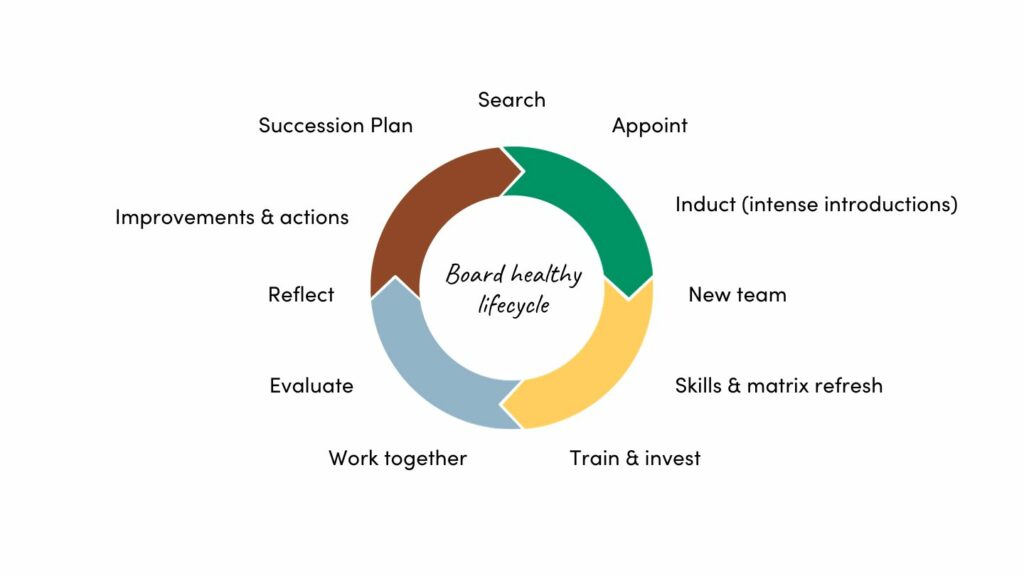
Keeping your board team’s lifecycle healthy
It’s a challenge for all boards. They are functioning well and then a member announces retirement, or their term is ending. Perhaps a board member is becoming bored and losing focus. Even a board that is functioning well will need to plan for changing board members. When new members join the board, or existing members depart, it can have a profound effect on the board culture and teamwork dynamics and, as a result, the board’s effectiveness.
New members bring with them unique experiences, skills and insights that can broaden the overall knowledge base of the board. This diversity can be a catalyst for innovation and can lead to more comprehensive and creative problem-solving approaches. However, it can also introduce challenges, as members may need time to acclimatise to the organisation’s culture and understand its specific challenges and opportunities.
The departure or addition of board members can also influence the priorities of the board. Different individuals may have varying opinions on what issues deserve the most attention, whether it be financial performance, corporate social responsibility, innovation, or other strategic matters. An attempt to shift priorities can, in turn, impact the strategic decisions made by the board.
Changes in board membership can also affect the level of expertise available to the board. If a departing member had specialised knowledge in a key area such as finance, technology, or international markets, the board may need to actively seek a replacement with similar expertise to maintain a well-rounded skill set. On the other hand, the arrival of a member with expertise in an area where the board was lacking can enhance the board’s ability to make informed decisions in that domain.
So how do we ensure the healthy transition of board members, which is a natural part of the board’s lifecycle? At Grounded we have developed ‘The Healthy Board Lifecycle’ to address each stage of the process. We’ve called it a lifecycle because, well, it’s a little like the circle of life. A new board is born with every new member that joins. By working through the lifecycle, and documenting its thinking, a board is always prepared for the next stage.
The Healthy Board Lifecycle

“A Board is a team – just like any team they need time to build an effective team culture. A successful board means investing and refreshing.”
Giselle McLachlan
The process of changing board members highlights the importance of effective selection, onboarding, integration and succession planning. Positive transitions require deliberate efforts by the whole board and the management team to integrate new members into the board, familiarise them with the organisation’s operations, and ensure continuity in strategic decision-making. Taking time to reflect on the culture and teamwork of the current board helps ensure continual improvement. Succession planning becomes critical to identify and train potential board members, minimising disruptions when changes occur.
Managing the lifecycle smoothly requires effective communication, collaboration, and leadership from both existing and new board members. Boards that successfully navigate these transitions tend to be more resilient, effective and adaptable in the face of evolving business landscapes.
How can we help?
At Grounded we work with you and your members to ensure a healthy board now and in the future. Our Board Healthcheck is a great place to start, but if you are unsure where you need help, we are always available for a chat. Contact us now.


